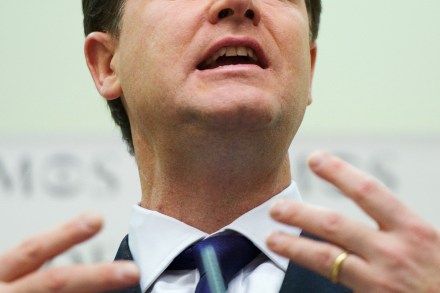Just in case you missed them… | 9 January 2012
…here are some of the posts made on Spectator.co.uk over the weekend: Fraser Nelson asks why Ed Miliband stopped his brother becoming Labour leader. James Forsyth looks at the implications of HS2 on the Cabinet, and reports on Cameron’s latest attempt to redefine fairness. Peter Hoskin says Miliband’s position is under increasing threat, and asks what’s more important to David Cameron: actual fairness or presentational fairness? Jonathan Jones examines Ed Miliband’s boastful Guardian interview, and says that the Democrats stand ready to face Mitt Romney. Martin Bright says now is not the time for Ed to share his view of his own capacities with us. On the Book Blog, Pamela Nash












